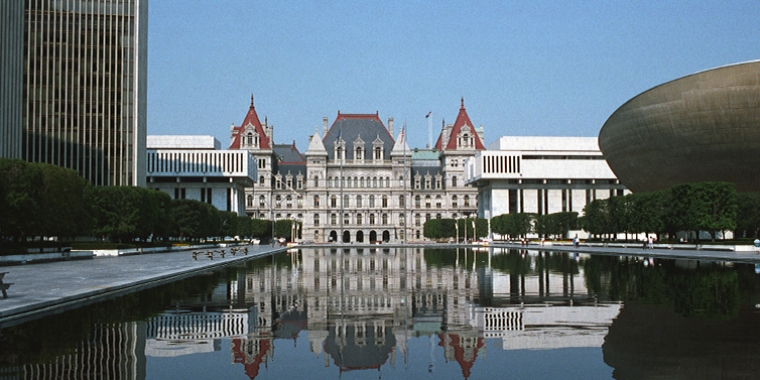Trump"s Funding Freeze Creates Crisis
In a shocking display of disregard for the welfare of millions, President Donald Trump has unilaterally frozen over $2 billion in federal funding critical to health care, food assistance, and environmental protections. This funding freeze is not just a bureaucratic maneuver; it is a calculated attack on the very fabric of social safety nets that support marginalized communities across the nation. State legislators in blue states are rising up, launching a counter-offensive that could redefine the balance of power between state and federal governments.
States Fight Back With Bold Legislation
Democratic lawmakers in Connecticut, Maryland, New York, and Wisconsin are spearheading innovative bills aimed at withholding state payments to the federal government if Trump’s actions continue to threaten essential funding. As reported by NBC News, this unprecedented strategy seeks to hold the federal government accountable for what many are calling an illegal withholding of funds. Maryland’s Democratic majority leader, David Moon, likens the situation to taking action against a “deadbeat debtor,” emphasizing the urgent need for states to leverage their power to protect their residents.

New York State Legislature | NYSenate.gov
Impact on Environmental and Social Justice Programs
The repercussions of Trump’s funding freeze ripple across programs that are vital to public health and environmental sustainability. Programs designed to assist children’s mental health and provide flood protection are now facing existential threats. As NPR reports, funding for climate action initiatives has also been jeopardized, endangering projects that aim to combat the climate crisis. This is not just a financial issue; it is a matter of life and death for communities already vulnerable to climate change, particularly those in low-income and marginalized areas.
Legal Challenges Ahead
Legal experts are quick to highlight the significant hurdles these state bills may face, especially given the U.S. Constitution’s supremacy clause, which typically favors federal authority. However, as Yahoo News notes, this legal quagmire does not deter state lawmakers from seeking creative ways to assert their rights. Washington state Senator Manka Dhingra describes the current political landscape as unprecedented, where states find themselves compelled to confront the federal government’s overreach directly.
Potential Backlash from the Trump Administration
Despite the courage displayed by state legislators, the threat of retaliation looms large. The Trump administration has a history of punishing states that defy its directives, particularly those that adopt progressive policies on immigration and health care. As Moon points out, the risks associated with this legislative gamble are palpable, as the federal government holds the upper hand in budget negotiations. The potential for further funding cuts or punitive measures against states that dare to challenge federal authority is real and significant.
Mobilizing Public Support for State Action
As state legislators move forward with their plans, grassroots movements will play a crucial role in amplifying their efforts. Activists and community organizations must rally public support to ensure that these bills not only see the light of day but also succeed in holding the federal government accountable. The stakes are high, and the imperative to safeguard health care, food security, and environmental protections for marginalized communities has never been more urgent. The calculated risk of withholding federal payments could very well be the beginning of a new era in state-federal relations, one where the voices of the people cannot be easily silenced by the whims of a single administration.



![[Video] Gunfire between Iraqi security forces and Sadr militias in Baghdad](/_next/image?url=%2Fapi%2Fimage%2Fthumbnails%2Fthumbnail-1768343508874-4redb-thumbnail.jpg&w=3840&q=75)
